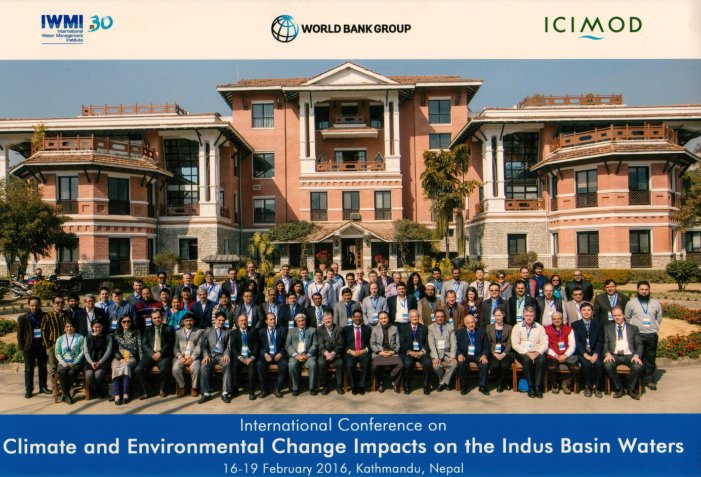An International Conference on Climate and Environmental Change Impacts on the Indus Basin Waters was organized jointly by ICIMOD, The World Bank Group and the International Water Management Institute from 16 to 19 February 2016 in Kathmandu, Nepal.
The Indus River Basin is shared by four countries Afghanistan, China, India, and Pakistan. The Indus Basin ranks among the most important river basins of the world in terms of human dependence. The river supports a population of about 215 million people, whose livelihoods are directly or indirectly dependent on it. Socioeconomic development of the countries in the basin largely depends on optimal utilisation and prudent management of the precious water resources of the Indus River basin. High rates of population increase in the region and associated socio-economic problems have been further aggravated by recent climate change impacts which have produced more stress on the water supply from the Indus River Basin system. Anomalous weather episodes may increase the risk of flooding and/or droughts in the region. Extreme events such as intense rainfall and prolonged droughts are expected. In addition to these issues, the impact of climate change looms across the region. One of the key areas where climate change impact is likely to be severe is the cryosphere and dependent water supply.

The main aim of the international conference was to build better understanding of ongoing research and interventions related to climate change and adaptation, cryosphere and water in the Indus basin. The latest understanding of physical processes related to climate, cryosphere and water availability and current and future trends in water demand were presented.
Dr. Walter Immerzeel (FutureWater) presented a keynote presentation titled “Recent Progress in the understanding of changes in climate, glaciers and water resources of the Upper Indus”. Arthur Lutz (FutureWater) presented FutureWater’s recent work on climate change impacts for the upper Indus basin hydrology.
